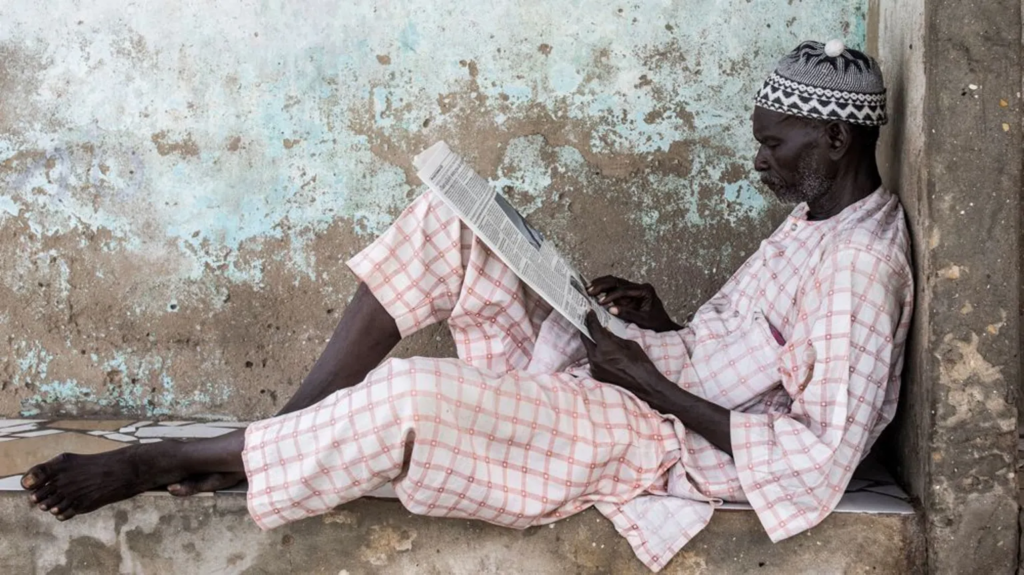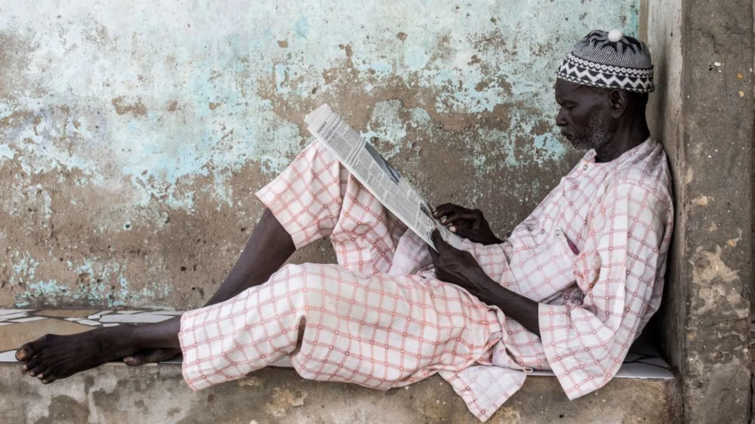Senegalese commuters hoping to browse the news on their way to work were left disappointed on Tuesday - most national newspapers refused to publish in protest against what they see as shrinking media freedom under the new government.
The media is experiencing "one of the darkest days of its history," the local Council of Press Distributors and Publishers (CDEPS) said.
It accuses the government - led by former opposition politicians - of freezing the bank accounts of media companies and seizing their equipment over alleged non-payment of taxes.
Officials justify the crackdown by saying they were trying to end practices that lead to financial embezzlement and mismanagement in the media industry.
President Bassirou Diomaye Faye came to power in March after defeating the ruling coalition's candidate in elections.
His rise to power came after the opposition led huge protests to demand elections that then-President Macky Sall postponed in what his critics saw as a ploy to cling to power.
As part of Tuesday's media blackout, newspapers were displayed on newsstands with no content inside. The editions solely consisted of a black cover reading "journée sans presse" ( French for "day without press") and an image of three raised fists gripping a pencil.
Not all papers participated in the protest - private outlet Wal Fadjri called the blackout an “ugly scar on the cheek of our beautiful democracy”.
While agreeing that the press was experiencing a "crisis", Wal Fadjri said a blackout should be the last resort as it would deprive readers of their right to information.

Radio stations largely rejected the boycott, but two popular private stations opted to play music instead of airing the news.
Private television channels like TFM (owned by Grammy award-winning singer Youssou N’Dour), ITV, and 7 TV broadcast news while demonstrating their support for the protest by featuring its slogan and image.
Concerns that the Mr Faye's government would try to restrict the media emerged a few months ago.
Prime Minister Ousmane Sonko was criticised by media professionals in June for warning that the government would no longer tolerate "falsehood" by journalists who he said were enjoying "too much impunity".
Mr Sonko used to be the public face of the opposition, and was barred from running for the presidency. He then backed Mr Faye.
Both of them had been imprisoned under the former government, and pledged to tackle corruption and strengthen democracy in Senegal.
From 2021 to 2024, Senegal slipped from 49th to 94th place on media watchdog Reporters Without Borders' world press freedom index.
The rights group recently urged Senegal's new president to take action to promote press freedom after years of "arrests and attacks on journalists, media closures and arbitrary Internet shutdowns" under Mr Sall.
Latest Stories
-
‘Mineral royalties stay in Accra while mining communities rot’ – Chamber of Mines boss
42 minutes -
‘But for mining, Ghana wouldn’t be here today’ – Chamber of Mines CEO laments neglect
1 hour -
It’s not mining company’s job to build skyscrapers’ – Chamber boss on community development
2 hours -
Tumu Community Cup: Soccer Babies to face Nabulo in opener as 24 Hours draw Tarsor
2 hours -
US Congress moves to block California ban on petrol-only cars
2 hours -
Modric to leave Real Madrid after Club World Cup
3 hours -
Four dead, several missing in record Australia flooding
4 hours -
Kid Cudi testifies at Diddy trial about Molotov cocktail attack
5 hours -
‘We’re losing to Kenya and Ivory Coast because of bad tax policy’ – Acting Chamber of Mines boss
5 hours -
Police arrest suspect in gruesome murder of University of Education lecturer in Winneba
5 hours -
Joy News gets results: Nhyiaeso MP constructs a 33-unit classroom block for State Experimental School in Kumasi
5 hours -
‘New taxes could collapse mining sector’ – Chamber of Mines warns
6 hours -
Ghana’s public debt rises to GH¢769.4bn in March 2025
6 hours -
Cedi gains 24.1% to dollar in May 2025 – BoG
6 hours -
Court issues bench warrant for businessman over GH¢149,000
6 hours

